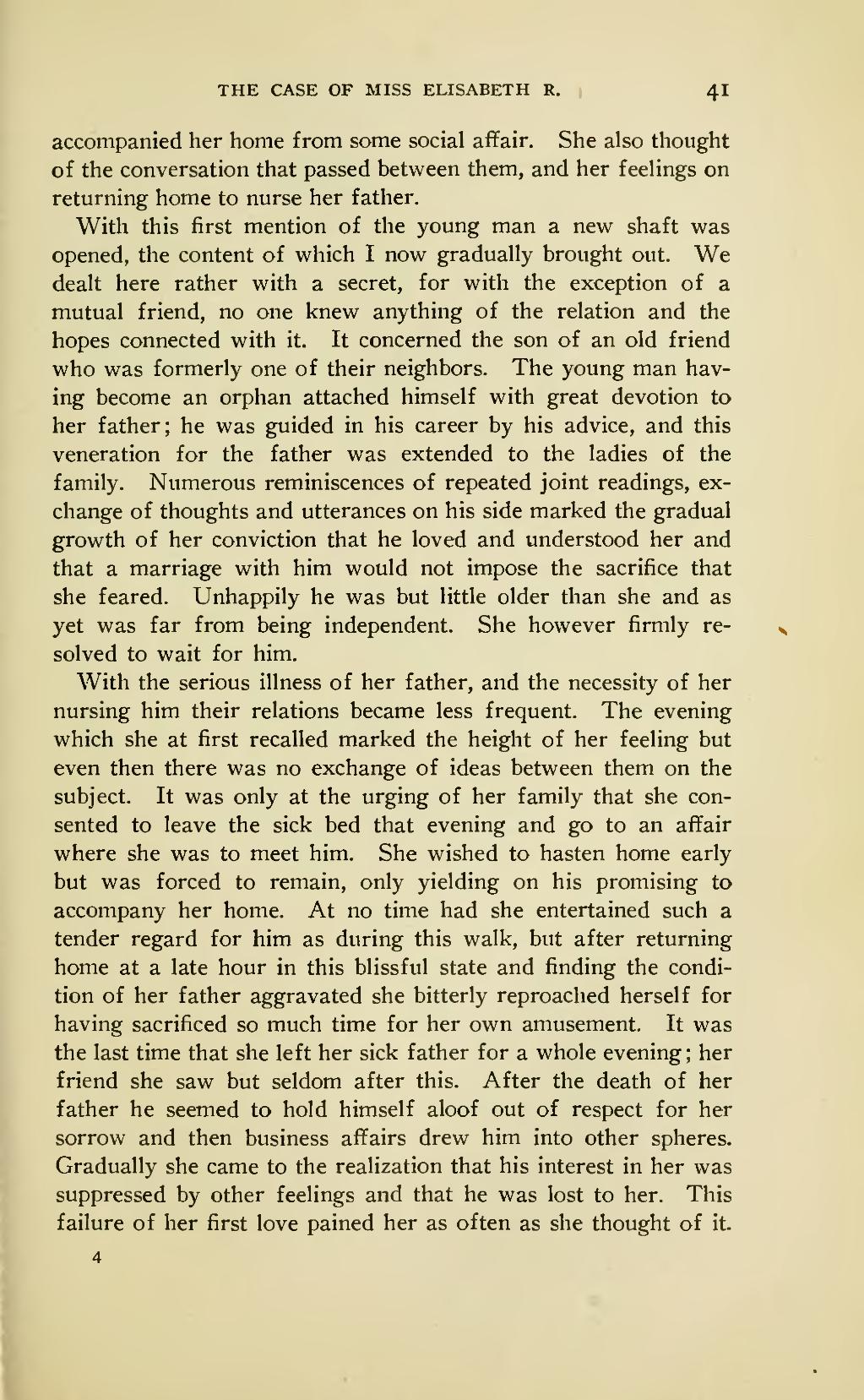accompanied her home from some social affair. She also thought of the conversation that passed between them, and her feelings on returning home to nurse her father.
With this first mention of the young man a new shaft was opened, the content of which I now gradually brought out. We dealt here rather with a secret, for with the exception of a mutual friend, no one knew anything of the relation and the hopes connected with it. It concerned the son of an old friend who was formerly one of their neighbors. The young man having become an orphan attached himself with great devotion to her father; he was guided in his career by his advice, and this veneration for the father was extended to the ladies of the family. Numerous reminiscences of repeated joint readings, exchange of thoughts and utterances on his side marked the gradual growth of her conviction that he loved and understood her and that a marriage with him would not impose the sacrifice that she feared. Unhappily he was but little older than she and as yet was far from being independent. She however firmly resolved to wait for him.
With the serious illness of her father, and the necessity of her nursing him their relations became less frequent. The evening which she at first recalled marked the height of her feeling but even then there was no exchange of ideas between them on the subject. It was only at the urging of her family that she consented to leave the sick bed that evening and go to an affair where she was to meet him. She wished to hasten home early but was forced to remain, only yielding on his promising to accompany her home. At no time had she entertained such a tender regard for him as during this walk, but after returning home at a late hour in this blissful state and finding the condition of her father aggravated she bitterly reproached herself for having sacrificed so much time for her own amusement. It was the last time that she left her sick father for a whole evening; her friend she saw but seldom after this. After the death of her father he seemed to hold himself aloof out of respect for her sorrow and then business affairs drew him into other spheres. Gradually she came to the realization that his interest in her was suppressed by other feelings and that he was lost to her. This failure of her first love pained her as often as she thought of it.
